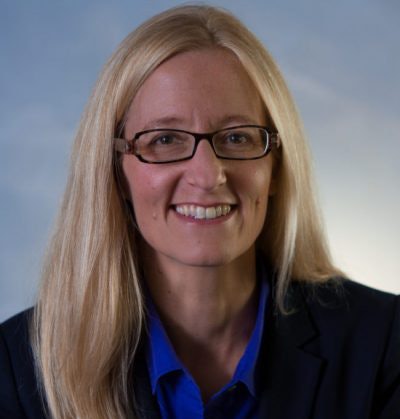There is a need for more support and investment in childcare and care work as the U.S. opens its economy back up, according to scholars who participated in a virtual panel titled “The Economics of Care: What’s at Stake for Women in the Workforce,” hosted by the Center for American Progress on Tuesday.
According to the event description, women have suffered disproportionately from job losses and insufficient caregiving supports, resulting in 4.2 million fewer women employed and almost 1.8 million fewer women in the labor force as of May 2021. The overall labor force participation rate for women is 57.4%, the lowest since 1988.
 Dr. Lisa D. Cook
Dr. Lisa D. CookWomen of color suffer higher unemployment rates than White counterparts, according to experts. These are the result of policy failures, such as lack of a comprehensive paid family and medical leave program and gaps in affordable child care access, worsened by the COVID-19 pandemic’s caregiving crisis.
Dr. Lisa Cook, professor of economics and international relations at Michigan State University, said that her research shows that if women’s participation was higher in the innovation economy, the economy could improve. Child care and family leave may also help to boost participation, she added.
“So if we’re not using all of the human resources we have in the economy and making it possible for people to participate, then we are leaving $20 bills – as economists say – on the ground,” Cook said. “We’re not maximizing our potential and we’re not raising living standards as much as we could. And one of the main policies that I have talked about, in terms of augmenting women’s participation in the innovation economy, is childcare and family leave. That’s why I would suggest that these conversations can’t be separate if we’re really talking about equitable, broad-based, long-run growth and augmenting living standards, not just the recovery but a sustainable economy.”
 Dr. Heidi Shierholz
Dr. Heidi ShierholzAs it stands now, the ways that the U.S. government invests in families and youth is lacking, said Dr. Aaron Sojourner, an associate professor of economics and labor economist at the University of Minnesota’s Carlson School of Management.
“That means that families are being crushed by this dual responsibility of care and earning. You have to put a roof over your family’s head and you have to provide care for a child who really needs care all the time,” Sojourner said. “Parents are stretched.”
Caregiving is a public good, said Ai-jen Poo, co-founder and executive director of the National Domestic Workers Alliance, and should be given collective support.
“I think, before the pandemic certainly, it’s embedded in our mental model around individualism that care and caregiving is a personal responsibility and burden,” Poo said. “And if we cannot manage or afford it, it’s a personal failure. Everyone in the pandemic recognized that we are just doing our very best and it’s not sufficient. We need infrastructure, policy, programs that can support us because this is a public good and a need that requires corrective solutions.”
Despite expected strong job growth and recovery as society opens back up and vaccine availability is more widespread, there needs to be an active effort to make jobs in the care industry equitable, said Dr. Heidi Shierholz, senior economist and director of policy at the Economic Policy Institute. She noted that good job growth does not necessarily mean an equitable economic recovery.
“We know that more than 90% of care jobs are held by women, over half of care jobs are held by women of color,” Shierholz said. “On an hourly basis, care workers are paid about three quarters of what other workers with similar demographic characteristics – who do other jobs – are paid. Care workers are much more likely to be poor or near-poor. It’s difficult to think of a better strategy for an equitable recovery than making sure these care jobs are good jobs.”
Arrman Kyaw can be reached at [email protected].





















